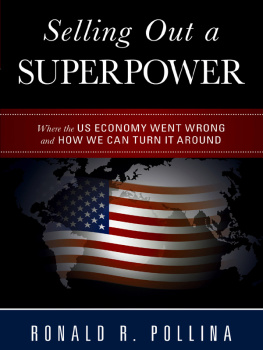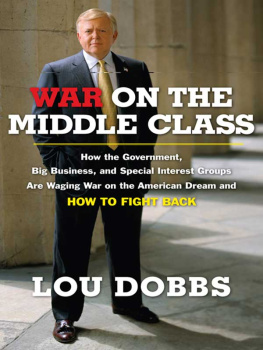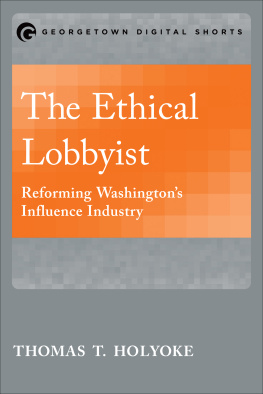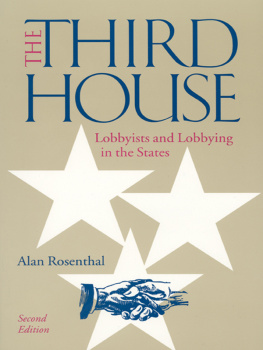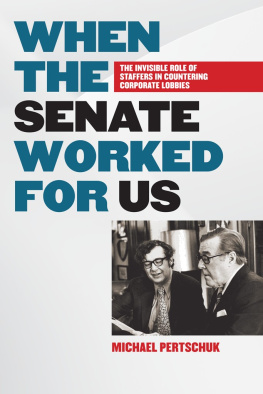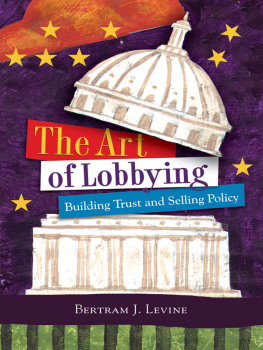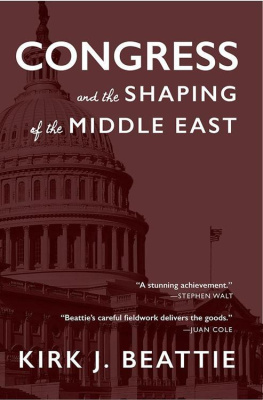Further praise for Selling Out a Superpower
Economist Ronald Pollina is a well-respected voice in the world of real estate and economic development. His tell-it-like-it-is approach makes for an eye-opening and interesting read.
Jeffrey M. Anderson
President and CEO, Virginia Economic Development Partnership
The book provides great insight into the causes behind the global shifts in international economic power and the erosion of US economic supremacy. There's enough blame to spread around among our political, educational, and corporate leadersand even the American people. Pollina notes that a coordinated, strategic approach is necessary to reverse this decline, starting with a citizenry that participates in electing responsible leadership and holding those leaders accountable.
Geraldine Gambale
Editor, Area Development magazine
In Selling Out a Superpower, Ronald Pollina has provided a great synopsis of where we are, how we got there, and what we can do to change the situation. I just hope enough people listen to what he has to say.
Mark S. Willis
Chief operating officer, Wyoming Business Council
Pollina's unique perspective adds an important dimension to the national economic debate. It should be required reading.
Dr. Ron Swager
Senior research professor, University of Arkansas at Little Rock

Published 2010 by Prometheus Books
Selling Out a Superpower: Where the US Economy Went Wrong and How We Can Turn It Around. Copyright 2010 by Ronald R. Pollina. All rights reserved. No part of this publication may be reproduced, stored in a retrieval system, or transmitted in any form or by any means, digital, electronic, mechanical, photocopying, recording, or otherwise, or conveyed via the Internet or a Web site without prior written permission of the publisher, except in the case of brief quotations embodied in critical articles and reviews.
Cover design by BMF Promotions, Inc. Cover images 2010 Media Bakery.
Inquiries should be addressed to
Prometheus Books
59 John Glenn Drive
Amherst, New York 142282119
VOICE: 7166910133
FAX: 7166910137
WWW.PROMETHEUSBOOKS.COM
14 13 12 11 10 5 4 3 2 1
Library of Congress Cataloging-in-Publication Data
Pollina, Ronald R., 1944.
Selling out a superpower : where the US economy went wrong and how we can turn it around / by Ronald R. Pollina.
p. cm.
Includes bibliographical references and index.
ISBN 9781616142155 (cloth : alk. paper)
ISBN 9781616142636 (e-book)
1. United StatesEconomic policy20092. United StatesSocial policy21st century. 3. Free tradeUnited States. 4. RecessionsUnited StatesHistory21st century. I. Title.
HC106.84.P65 2010
330.973dc22
2010020542
Printed in the United States of America on acidfree paper

PREFACE
A s a member of the baby boom generation, I have had the pleasure of growing up and spending most of my career in one of the greatest periods in United States historythe twentieth century During this period, the United States became the richest and freest nation in the world. It attained this status in part by the immigrants who have been coming to this country for over two hundred years. It is these Americans and their descendants who contributed to making what many consider to be the greatest country in the world. But the nation's current state of decline is a dishonor to these past generations of Americans who worked so hard to make this country a global superpower.
In part, this book illustrates the changes I have witnessed over the past thirty-five years, while I helped corporations select locations for their manufacturing, distribution, research and development, and corporate office facilities. I have been to places where tourists do not gofrom small towns in rural Mississippi to the aging industrial neighborhoods of the nation's largest cities. I have talked to laborers and some of the nation's most senior corporate executives, as well as numerous small-town mayors, governors, and members of the United States Congress. I was often charged with digging deeply to identify communities, states, and countries that would provide the most desirable location for my corporate clients' specific needs. These comparative investigations examined factors such as labor, taxation, education, infrastructure, transportation, health care, and quality of life.
Earlier in my career, I witnessed, researched, and wrote about the outward migration of manufacturing from the Rust Belt states of the North and Northeast to the South and West, and the movement of office and manufacturing from central cities to suburban and rural locations. Essentially, these migrations have had negative repercussions on parts of the nation while benefiting other parts. In recent years, I witnessed another economic migration characterized as globalization or offshoring, a phenomenon of the twenty-first-century global economy. There are forces causing this migration that are inevitable. Like all economic forces, they can be managed poorly or they can be managed in such a way that we as Americans can benefit from them. This book will show that we as a nation have been dealing with these economic forces in a disastrous manner. The brunt of this disaster is being felt today primarily by the middle and lower classes throughout the nationit would be felt whether we had been in a recession or not.
The recession, while helping us focus on some of the causes of economic problems, distracted our attention from others. Unfortunately, the cause of the recession was not simply the collapse of the housing market or a greedy and unregulated Wall Street. These were recessionary triggers for an economy that has been wracked with problems and spiraling downward for decades. Pulling ourselves out of the recession with quick-fix solutions such as TARP, the American Recovery and Reinvestment Act, or the reregulation of Wall Street are not going to reverse our economy's long-term trend. A rebound from the recession based on stock adjustments or government stimuli alone will not last. Without addressing the other crucial factors eating away at our economic strength, we will not be in a position to regain our economic stature or maintain our role as a superpower as we progress further into the twenty-first century. We are simply applying Band-Aids to mortal wounds.
For most of my career, I saw optimism among the population, as incomes rose and the number of jobs grew. But over the last two decades, and especially since the turn of the century, attitudes have started to change. I have witnessed a rapidly changing attitude in Americans toward their future and that of their children as well as that of the nation. Today, most Americans see their incomes eroding, their personal debt rising rapidly, and the prospects for a better job and standard of life disappearing. Especially troubling, many people do not see the situation improving for their children.
I wrote this book out a love for my country and for my family. I did not write it for any particular audience but rather for the general public. My objective has been to identify many of the issues that most Americans are aware of but may have a difficult time tying together. I have tried to answer the following questions: Why is it so hard for my family to stay out of debt? Why did the housing and financial markets melt down? Why can't my state or community attract more and better jobs? Why are so many of our best jobs lost to China, India, and Mexico? Why can't I find American-made products to buy? If America is so wealthy, why is the value of the dollar so low? Why do politicians promise so much before the elections and deliver so little after elected? How do special-interest groups control our political system? How can the richest nation in the world be so much in debt?

